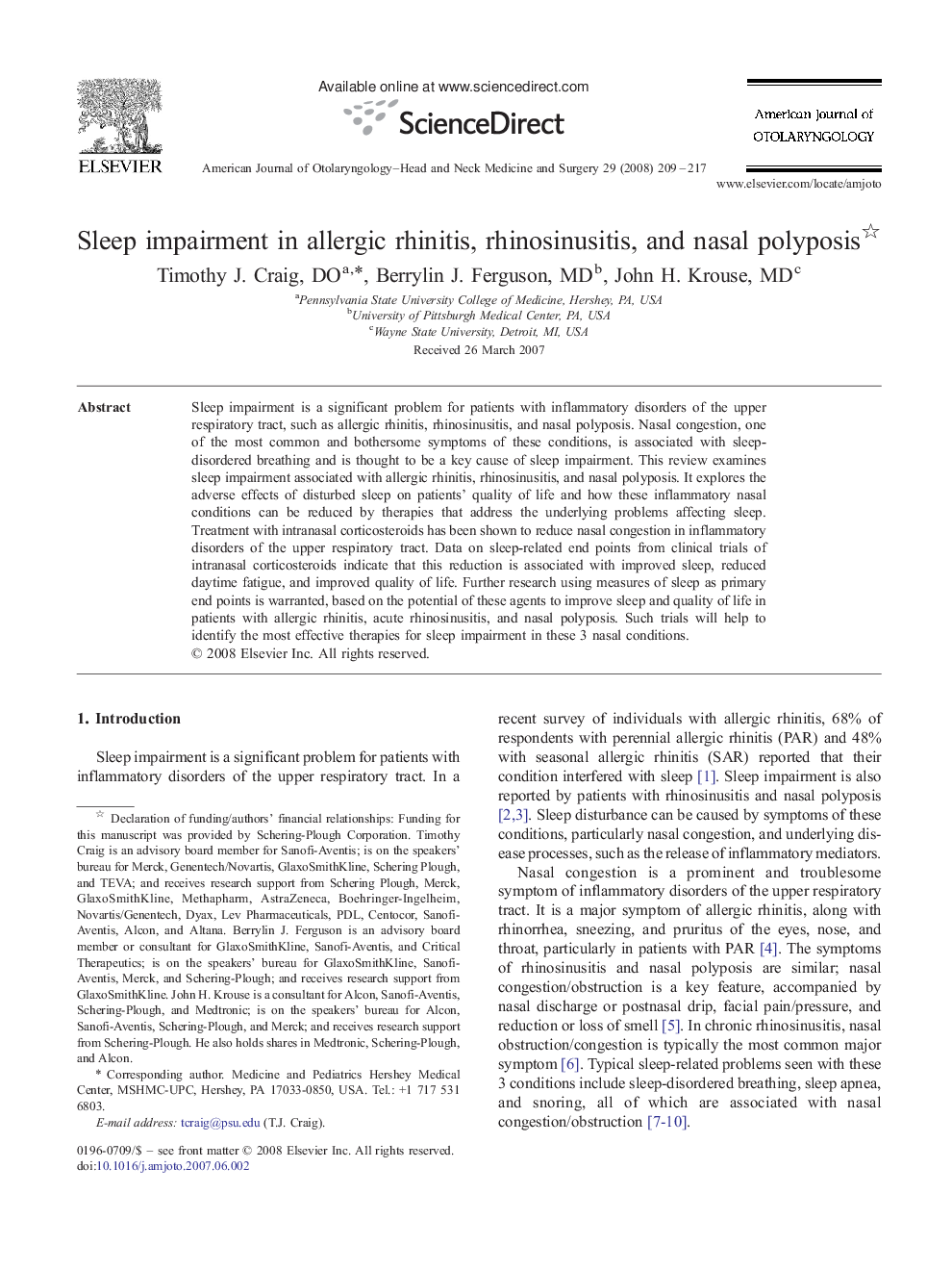| Article ID | Journal | Published Year | Pages | File Type |
|---|---|---|---|---|
| 4104416 | American Journal of Otolaryngology | 2008 | 9 Pages |
Sleep impairment is a significant problem for patients with inflammatory disorders of the upper respiratory tract, such as allergic rhinitis, rhinosinusitis, and nasal polyposis. Nasal congestion, one of the most common and bothersome symptoms of these conditions, is associated with sleep-disordered breathing and is thought to be a key cause of sleep impairment. This review examines sleep impairment associated with allergic rhinitis, rhinosinusitis, and nasal polyposis. It explores the adverse effects of disturbed sleep on patients' quality of life and how these inflammatory nasal conditions can be reduced by therapies that address the underlying problems affecting sleep. Treatment with intranasal corticosteroids has been shown to reduce nasal congestion in inflammatory disorders of the upper respiratory tract. Data on sleep-related end points from clinical trials of intranasal corticosteroids indicate that this reduction is associated with improved sleep, reduced daytime fatigue, and improved quality of life. Further research using measures of sleep as primary end points is warranted, based on the potential of these agents to improve sleep and quality of life in patients with allergic rhinitis, acute rhinosinusitis, and nasal polyposis. Such trials will help to identify the most effective therapies for sleep impairment in these 3 nasal conditions.
